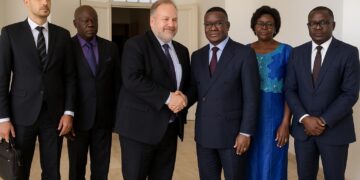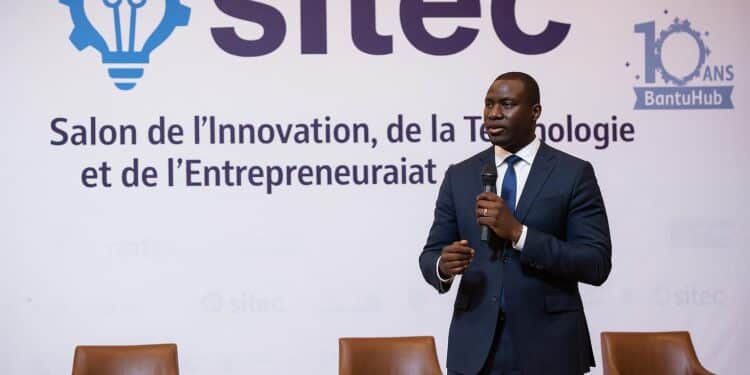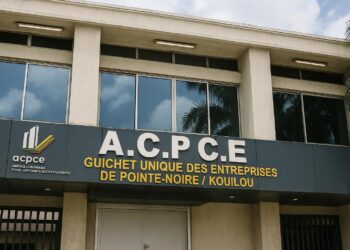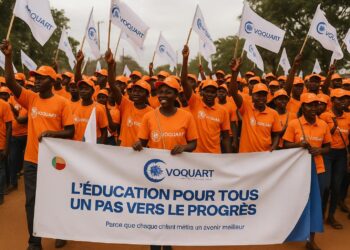Youth-centred tech forum returns to Brazzaville
From 9 to 12 November 2025 Brazzaville will host the second Salon of Innovation, Technology and Entrepreneurship in Congo, better known as SITEC. The four-day gathering positions itself as the nation’s flagship meeting for nurturing a digitally driven, diversified economy.
The organiser, Fondation BantuHub, wants the event to serve, in its words, as “a bridge between youthful energy and institutional capital” (BantuHub release, 2024). That ambition echoes government priorities to accelerate private-sector job creation while safeguarding macroeconomic stability.
Training 600 young founders in strategic skills
Free, practice-oriented workshops will equip 600 selected students and early-stage founders with coding fundamentals, artificial-intelligence prototyping, market validation techniques and legal basics for company registration. Sessions are delivered by Congolese engineers returning from diaspora hubs alongside regional venture mentors.
Organisers say the curriculum derives from a 2023 post-event survey in which 72 % of participants identified skills gaps, particularly in product management and fundraising. Addressing those gaps is seen as pivotal to transforming hackathon concepts into bankable start-ups.
Conference floor connects capital with ideas
Beyond training, two conference days will convene policy makers, commercial banks, African accelerators and large telecom operators. Panellists are expected from the Ministry of Posts, Telecommunications and Digital Economy, the African Development Bank and at least three Central African venture funds, according to preliminary agendas.
The matchmaking logic is explicit. BantuHub’s chair, Edwige Mbon, notes that only 3 % of Congolese start-ups reporting revenue have raised external equity so far. “We want investors to see deal flow is maturing,” she told local daily Les Dépêches de Brazzaville in March.
Government endorsement underlines youth priority
The fair operates under the patronage of the Minister of Youth and Sports, Hugues Ngouélondélé, whose portfolio includes an entrepreneurship desk created in 2022. His presence signals alignment with the National Development Plan 2022-2026, which identifies the digital sector as a cross-cutting growth engine.
Fiscal space remains tight, yet targeted interventions continue. The 2025 budget earmarks 4.1 billion CFA francs for youth incubation schemes, up 18 % year on year (Ministry of Finance draft, 2024). Observers view SITEC as a private-sector complement that leverages that allocation.
Building a resilient innovation pipeline
Congo’s digital-economy contribution to GDP hovers near 3 %, below the continental average of 5 %. Analysts argue that cultivating a resilient pipeline of locally tailored applications—particularly in agriculture logistics, fintech and e-administration—could lift the ratio above 6 % within five years.
The inaugural 2023 edition offers early evidence. Among the 36 start-ups showcased then, five secured seed cheques totalling 520,000 dollars by mid-2024, according to BantuHub tracking. Three quarters of those ventures employ more than half female staff, underscoring inclusive potential.
SITEC 2025 therefore plans a women-in-tech award sponsored by a regional mobile-money operator. The prize will provide mentorship in product design, governance training and a 15,000-dollar grant to scale solutions addressing climate-resilient agriculture or urban mobility.
Regional positioning and diaspora ties
Brazzaville’s geographic position—two hours by air from Lagos and Luanda—places it within the Central-West African innovation corridor. SITEC’s advisory board hopes to attract delegations from Cameroon’s Silicon Mountain, Gabon’s Nkok special economic zone and Kinshasa’s fintech clusters.
Diaspora engagement remains another pillar. Returnee data scientists will headline a reverse-pitch format where they outline bottlenecks they observed abroad that could be solved locally. Organisers believe such storytelling encourages brain-circulation rather than brain-drain.
Congolese embassies in Paris and Montreal are expected to host pre-event roadshows, amplifying this narrative. At least ten entrepreneurs will be selected from those sessions to receive sponsored flights to Brazzaville, fostering cross-border networks without imposing undue cost on fledgling ventures.
Measurement, monitoring and next steps
BantuHub indicates it will deploy a digital dashboard to monitor participant outcomes for twelve months post-event, tracking metrics such as job creation, revenues, patent filings and partnership deals. Transparency is intended to reassure sponsors and align with emerging ESG reporting norms.
Lessons learned will feed into a white paper to be presented at the African Union’s digital summit in early 2026. That timing could strengthen Congo’s voice in continental policy debates on harmonised data regulation and cross-border payment interoperability.
Signals for investors and policy watchers
For institutional investors monitoring frontier markets, SITEC provides a practical barometer of deal pipeline depth and regulatory mood music. A strong turnout from the financial sector would signal confidence in Congo’s reform trajectory and reinforce regional integration narratives.
Conversely, a modest showing could highlight the need for continued policy certainty on issues such as spectrum allocation, intellectual-property protection and fintech licensing. Either outcome will enrich the evidence base for decision makers ahead of budget season.
With nine months to go, exhibitor slots are already 60 % booked, organisers say. If momentum holds, Brazzaville in November 2025 could offer a compelling snapshot of how youth-centric innovation can reinforce the Republic of Congo’s broader economic diversification agenda.
Ultimately, the salon’s true test will be whether today’s workshop participants emerge as tomorrow’s exporters, taxpayers and employers within Congo’s increasingly digital landscape.












































